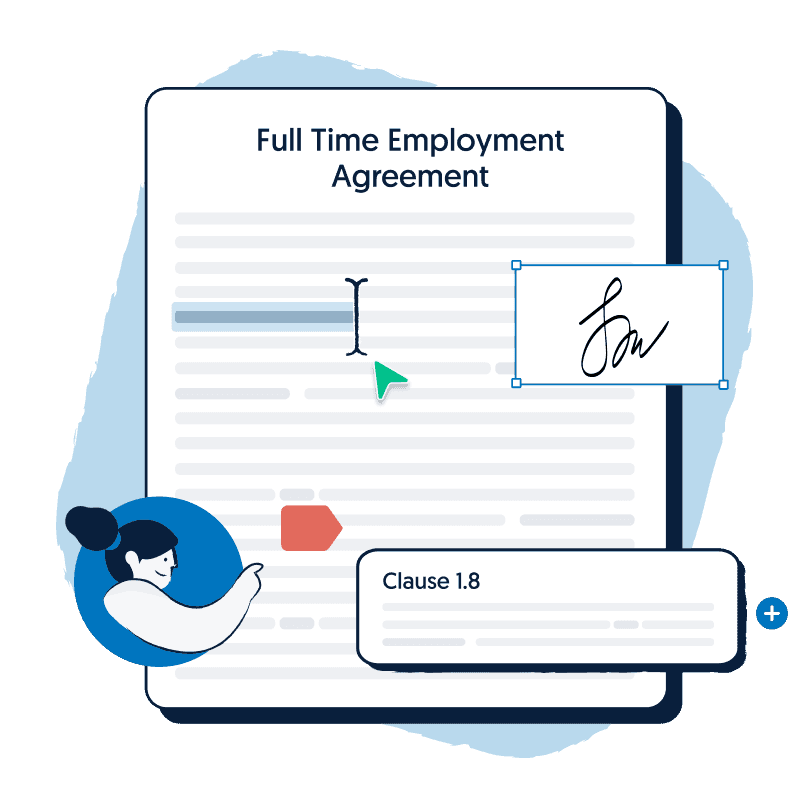Sydney-based paralegal and JD student. Formerly Legal Intern at Lawpath.
Have you ever seen a vacant possession clause in a property contract? People often overlook these important clauses in the hurry to get a sale. In the past, we have covered what’s involved in the purchase of real estate, but in this article, we will cover what vacant possession is and how it works.
Before continuing with the article, you must know the difference between chattels and fixtures.

Get your Full Time Employment Agreement legal document for free.
Chattels
Chattels are personal property not in the sale or lease of land. These usually can be moved and include things, such as kitchen appliances and furniture. However, chattels sometimes are immovable property. Therefore, the purpose of the object also helps in figuring out if the property is a chattel.
For example, in one case, the Court held that seats in a theatre were chattels, even though they were bolted to the floor. This was because the purpose of the seats was not for them to remain permanently in the theatre.
Fixtures
Fixtures, on the other hand, are objects that are fixed to the property and whose purpose is to attach to the property. These are in the lease or sale contract. Fixtures include things, such as kitchen bench tops, basins and backyard sheds.
You will need legal assistance to figure out which property are chattels and which are fixtures, as sometimes the two seem to crossover.
What is vacant possession?
To give vacant possession, the seller must ensure there are no chattels or rubbish preventing the buyer from full enjoyment of the property. Common chattels preventing full enjoyment are:
- Tables, beds, wardrobes, drawers;
- Fridges, moveable ovens, washing machines, dryers;
- Picture frames, curtains, ornaments.
What is the break date?
A break clause enables the tenant or landlord to end their lease early. Vacant possession commonly attaches to break clauses.
Commercial
If you are a business, then most likely you are entering into a lease for a premise. Vacant possession applies to leases as well as sales. The previous tenant business must give vacant possession. The lessee will get compensation for time and opportunity lost.
Real Estate
If you are an individual or business purchasing real estate, then vacant possession applies. Just like in commercial situations, the previous owner must remove their stuff. If this does not happen, then the purchaser can get compensation. This compensation comes in two main forms:
- Part of the purchase price is reserved for the buyer to cover the costs of removing the materials. This is appropriate when removal of materials is not harmful and will not require immense effort.
- Seller must organise and facilitate the removal of materials. This happens when the materials are hazardous or are substantial.
However, if the material or rubbish is particularly bad, then the buyer may be able to exit the contract.
Employees and contractors
Vacant possession includes the removal of persons as well as material from the premises. This applies mainly to commercial leases and sales. If the previous lessee or owner continues to employ people on the premises, without transferring to the new lessee or buyer, then this breaches vacant possession. Contractors on assignment need removing if their presence and work is not in the contract.
The rules of vacant possession are complex, you should seek legal advice to assist you.
Want to know more? Contact a LawPath consultant on 1800 529 728 to learn more about vacant possession and to obtain a fixed-fee quote from Australia’s largest legal marketplace.

Get a fixed-fee quote from Australia's largest lawyer marketplace.






